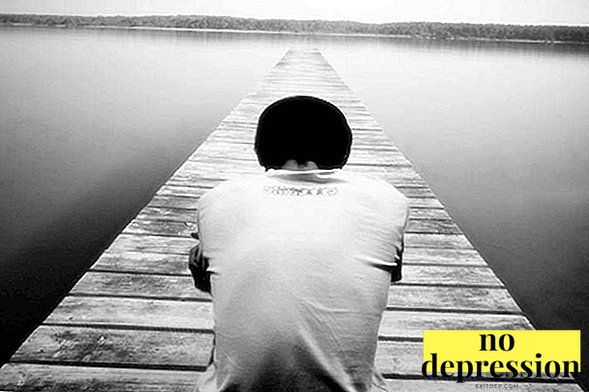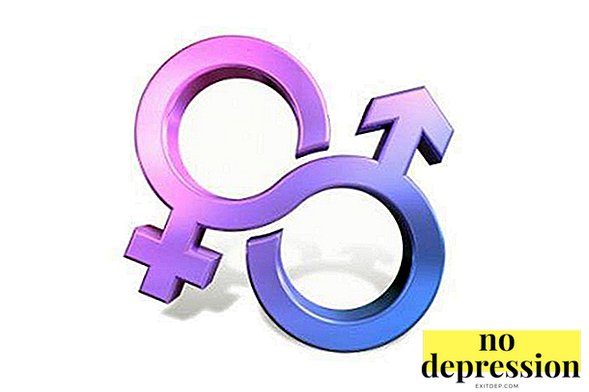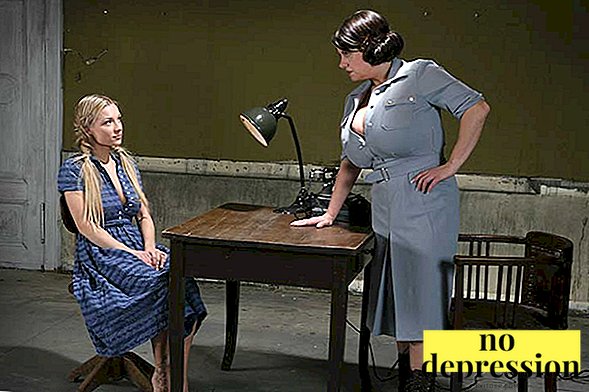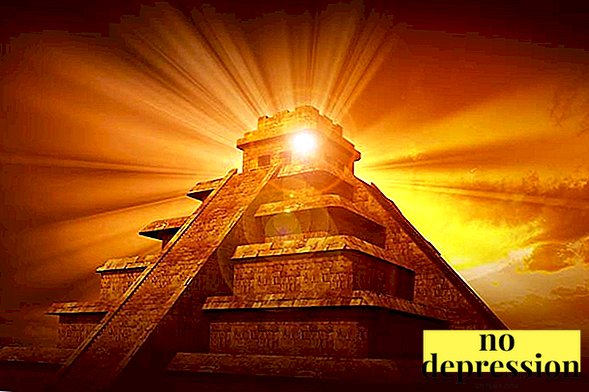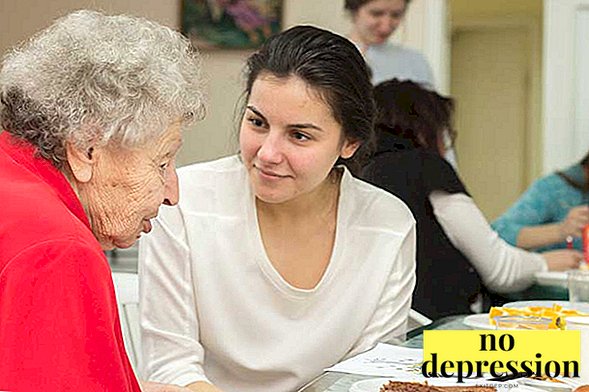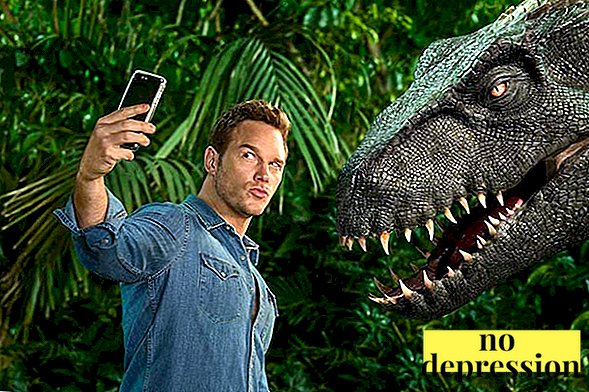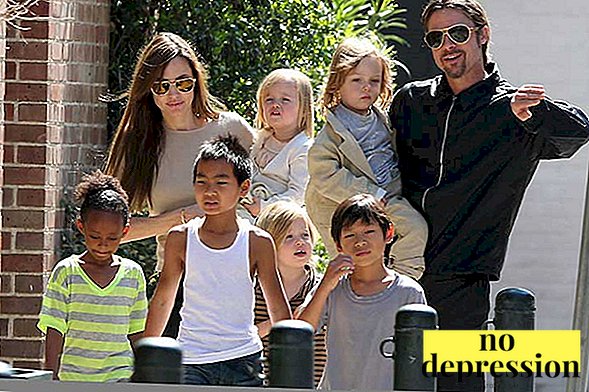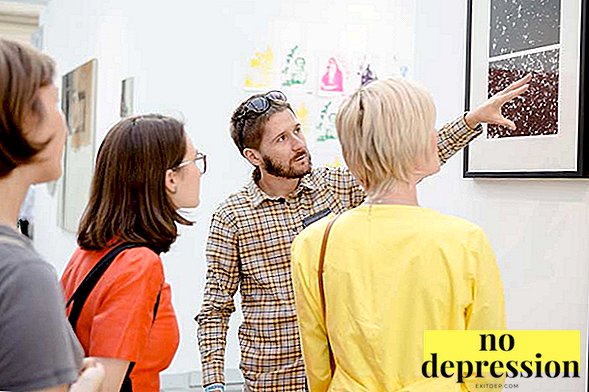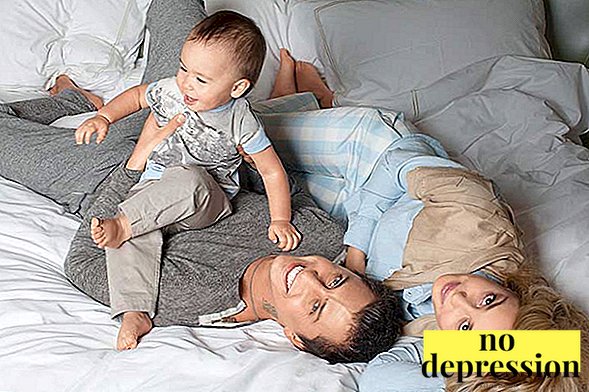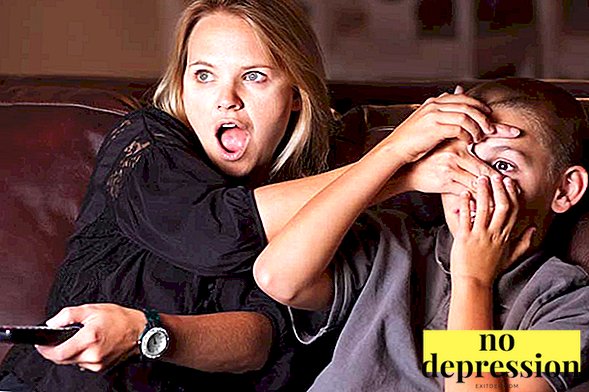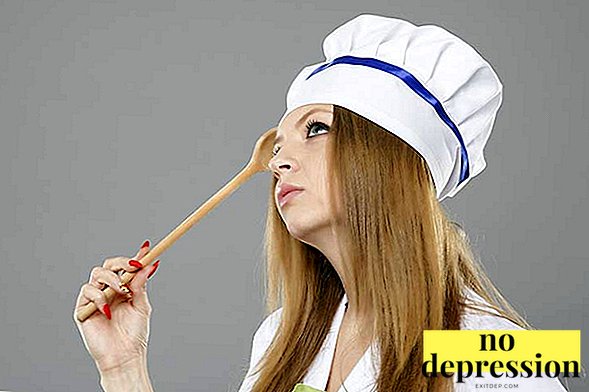Modern neuroscientists say that people simultaneously live in two types of worlds: the physical and the imaginary world of signs. It is possible to touch the physical world, and the invented one exists only in gigantic volumes of the human brain. How is our consciousness formed? What happens in the depths of the brain while studying or playing a musical instrument?
Category What
Of the diversity of the states of the human psyche, one of the most dangerous and destructive is precisely melancholy. This pressing feeling, gradually, gradually, as if corrosion corrodes the psyche of the individual. It is a whiff of a raw, dank drape overwhelming the muscles with a painful spasm, twisting the joints on a red-hot skewer.
Criticizing the movement for equality, people can not explain the difference between the concepts of "gender" and "gender." Feminists seem to be embittered creatures, and few have heard of feminists in general. What are gender roles, stereotypes and features? What are the differences between the concepts of "gender" and "sex"? And why in the summary it is worth removing marks M and M?
Sexual addiction, which is different from the "normal", we immediately refer to the category of perversions. But sexual interest in a short skirt or muscular arms is not always considered a deviation from the norm. Unusual manifestations of fetishism today can be seen not only in films, but also in real life.
Every year on November 16 the world celebrates the Day of Tolerance. School teachers put up posters about the goodness of man to man, organize a drawing contest, talk about the diversity of cultures. But what does it mean to be tolerant in the family, at work, on the street? How to respect others, but not to infringe their rights? And what is an indicator of tolerant behavior?
From birth, a person has a male or female gender. That is what his behavior, habits and lifestyle depend on. A certain sex of a person has an addiction with his sexual sphere. Sexuality is a common manifestation of human nature. But despite this, it is quite difficult to manage this area, since many mechanisms of such behavior remain completely closed and unsolved by man.
A lie is an endless ocean in which you can easily drown. People lie to relatives, to each other, to themselves. Why is another question. While we are satisfied with this game, everything is calm. But when we understand that we are being cheated purposefully, I want to get evidence. The desire of people to find out the truth, confirmed by numbers, led to the invention of the lie detector.
The brain is a real universe within us, worthy of constant study. But you can explore yourself in different ways. Infinitely plunge into the abyss of self-consciousness or honestly talk to your “I” and begin to act. Analyze your mistakes or start all over again, but taking into account past experience. Self-knowledge or reflection helps to know oneself, but it is not capable of changing life without effort on our part.
Democritus called the needs of the main driving force through which humanity got the mind, language and thinking. Abraham Maslow packed all the needs into a pyramid more than half a century ago. Today, his theory is used in work, business, and criticized simultaneously. To learn how to use it to your advantage, you need to figure out how the Maslow pyramid is structured, what parts it consists of, and why the steps are arranged in exactly this sequence.
Modern neuroscientists say that people simultaneously live in two types of worlds: the physical and the imaginary world of signs. It is possible to touch the physical world, and the invented one exists only in gigantic volumes of the human brain. How is our consciousness formed? What happens in the depths of the brain while studying or playing a musical instrument?
“If you do good to another, you will benefit from it,” says a Mongolian proverb. And this fact is proven scientifically. Experts say: voluntary help improves mood, reduces pressure, prolongs life and makes us happier. Today we will talk about mercy in religion and everyday life. And also - about how good deeds will help to get away from depression and loneliness.
Describing an illogical act, we often add: "And how could this happen? Some kind of paradox." Or we begin to retell strange news with the words: "Paradoxically it sounds ...". Some of us are acting contrary to common sense, and can not explain their actions. How do contradictions manifest themselves in our thinking?
The Psychiatric Encyclopedia states that one of the most important innate human needs is the need for dominance. But upbringing makes its own changes. One child grows up with repressed need, another makes dominance the meaning of life. Why is the dominant one and not the other?
It seems that in managing life there is nothing more important than formulating principles and following them. But not everything is so obvious. The topic of a tough life position causes a lot of controversy. Some compare the iron principles with a magnet that attracts the shackles. Others call them an internal compass, without which it is impossible to survive.
The topic of xenophobia is relevant, tragic and dramatic at the same time. It affects individuals and the whole society. Sometimes we do not even understand that we hurt a person whom we consider to be a stranger. Sometimes we understand, but we continue to act aggressively. Where does the hostility to someone else, incomprehensible?
As sometimes it is difficult to express your feelings, retell the film, hit the interlocutor with an exact comparison. In such cases, metaphor comes to the rescue. She makes our speech lively, emotional, voluminous, driving. How do imaginative comparisons help us communicate? When used in movies or commercials? Why do psychotherapists invent fairy tales?
Do you know how many times the word "truth" was entered into the search engines? Over the past month, almost 500 thousand times. Half a million requests and 22 million responses to a question that has been of interest to people for thousands of years. Only all the answers are parts of a huge puzzle that connect and form the real Truth.
Throughout life, we accumulate a lot of stereotypes. First, they prevent us from learning, then - to start a relationship, work, communicate. Therefore, the attitude to the concept is often negative. But who invented these patterns of thinking? Why are they needed if they do not leave us free rein? And how to learn to recognize your stereotypes?
Often women blame partners for excessive sexual appetite and betrayal. But sometimes female insatiability in bed becomes a problem. What is it like when you want sex 24 hours a day? Who can be diagnosed with nymphomania? How many partners are considered “normal”? Is there a socially acceptable distinction between diversity and lust?
The concept of taboo has already lost its intimidating religious meaning. Yet we do not believe that the sky will open up, and the deity on a fiery chariot will punish us for a sandwich during fasting. But we manage to put barriers in our heads, even forgetting where they came from. Do we need restrictions or is it a relic of the past of society?
According to statistics, up to 25% of patients who go to general practitioners are hypochondriacs. And about 60% of the symptoms voiced by patients have no organic causes. But one thing is to monitor health, and another is to harass yourself with invented pain. How to recognize a hypochondria and distinguish it from the desire to live healthy?


